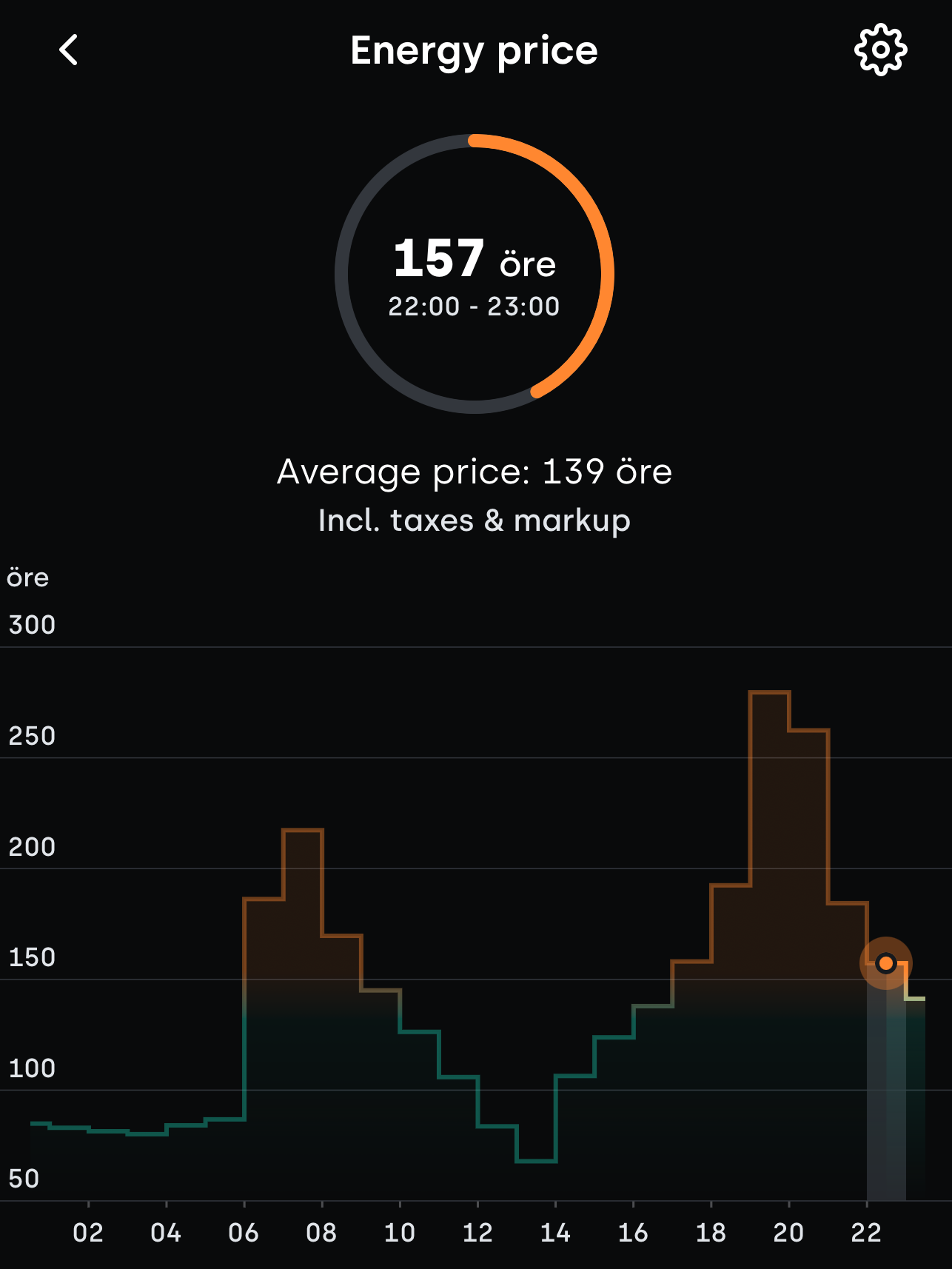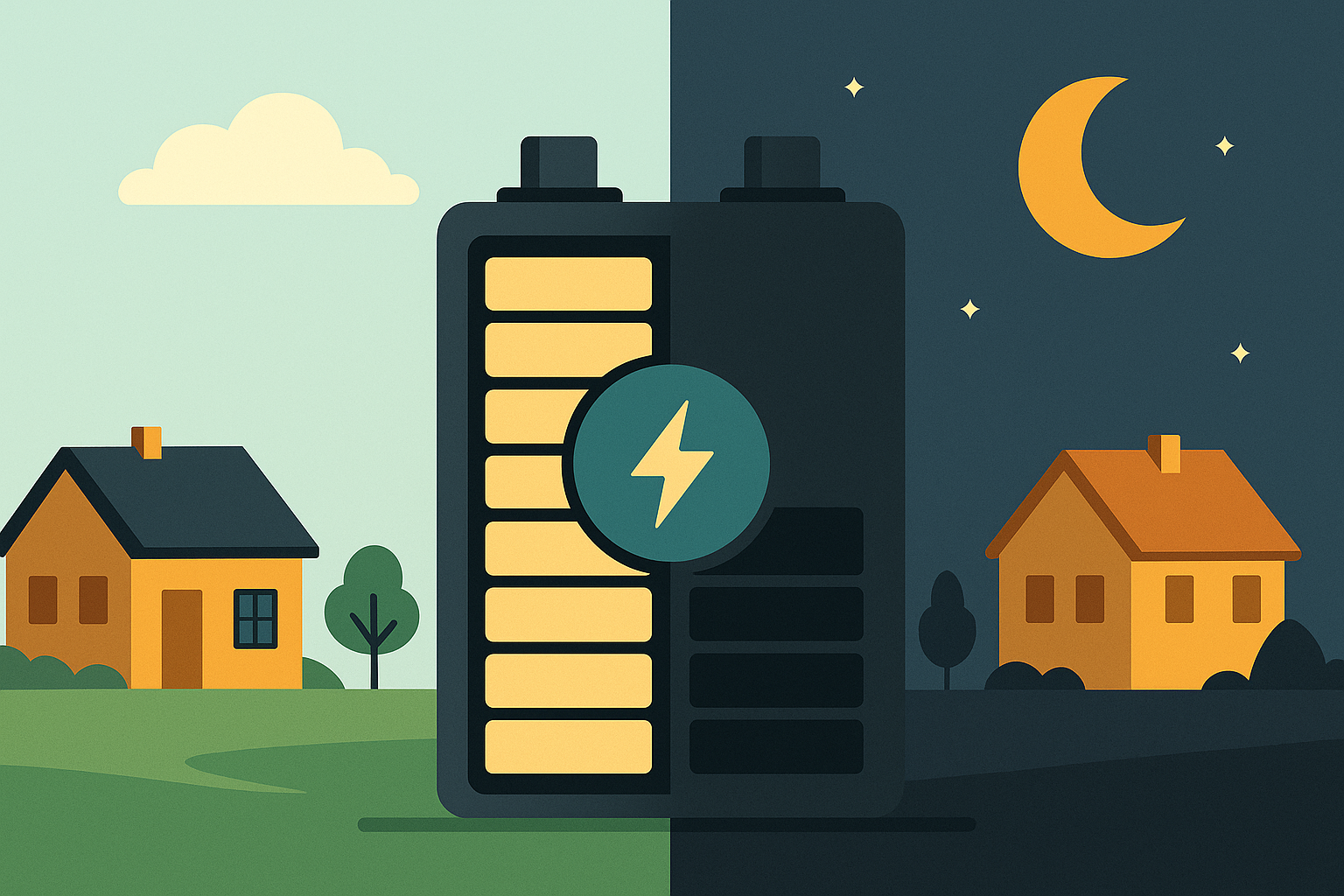A common question when talking about solar panels is: “Do you really need a solar battery?”
For us, the answer has become clear: the battery is not just a place where energy is stored — it is a central part of getting real benefits, both economically and practically, from solar energy.
Self-consumption first
Without storage, a large share of the solar power is sold during the day, often at a lower price than what we ourselves pay when we buy electricity in the evening.
Every kilowatt-hour we can use ourselves, directly or via the battery, is therefore more valuable than the one we sell.
In July and August, we clearly saw that the battery helped reduce our purchases in the evening. The result: higher self-consumption and a better financial case for the system.
To the right, you see the costs of buying electricity from the grid: peaks in the morning and evening. This is usually the time when the sun is either just starting to produce or is fading away. A battery can cover both the evening hours and the early morning hours. And if the weather is good, it can be charged during the day. So far in August, we have only had two days when we needed to draw electricity from the grid. This will of course, change in the coming months.
We are currently using a 16 kWh battery (actually 2×8), and during the summer months we can easily get through the night and early morning hours.

Protection against price peaks
Electricity prices vary significantly, both during the day and between seasons.
With a battery, we can avoid buying electricity during the most expensive hours and instead use the stored solar energy.
In combination with smart control, we can also choose to charge the battery when electricity is cheap and use it when the price is high.
Battery backup and reliability
Many people think that a battery automatically means backup during a power outage. But that’s not always the case.
Our system is a non-islanding solution — which means that if the grid goes down, both the inverter and the battery shut off. This is a safety function to prevent electricity from being fed into the grid while repair workers are working on the lines.
For us, the solar battery is therefore not about backup power during outages, but about maximizing self-consumption, lowering costs, and being able to control when the energy is used.
If you want backup during power outages, you need a system with so-called islanding, where parts of the house can be disconnected from the grid and continue running on solar + battery. That is technically possible, but both more expensive and more complex.
Limitations with batteries
It’s important to be realistic:
- In winter, there is often too little sun to charge the solar battery — but it still helps you to cap the price peaks.
- There is always some loss when charging and discharging (around 10–15%). Fun fact: the waste heat from that is actually enough to heat our garage.
- Profitability depends a lot on how the household uses electricity and on the rules in the market.
So the battery is not a miracle solution — but it really changes the conditions.
Conclusion
For us, the battery has already proven its value:
- Higher self-consumption
- More control over when and how we use our energy
- A clearer sense of self-sufficiency
And with the upcoming changes in tax rules from January 2026, self-consumption will become even more important.

No responses yet